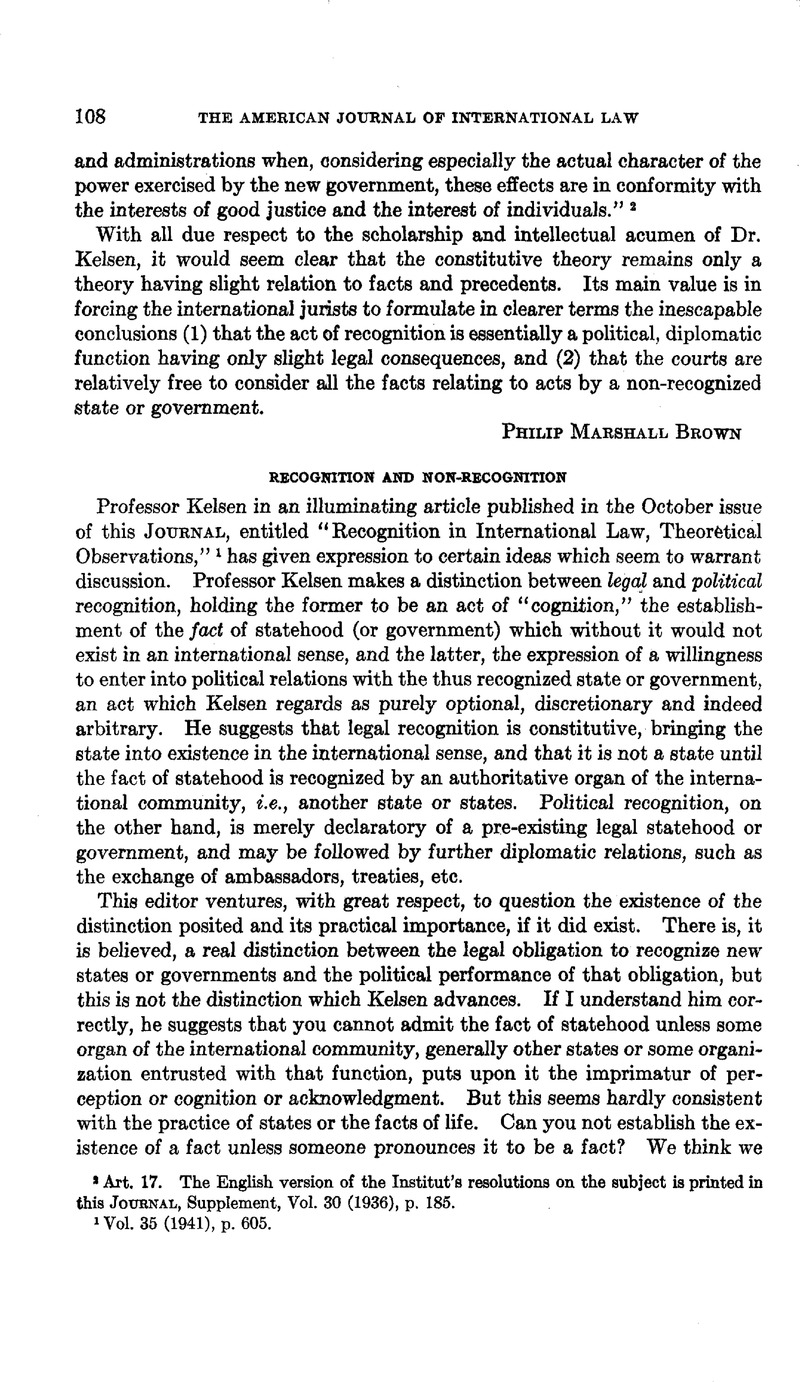Published online by Cambridge University Press: 12 April 2017

1 Vol. 35 (1941), p. 605.
2 Luther v. Sagor, [1921] 3 K. B. 532.
3 Wulfsohn ». Russian Socialist Federated Soviet Republic, 234 N. Y. 372, 13g N. E. 24 (1923).
4 Cf. VTadikavkazsky Railway Co. v. New York Trust Co., 263 N. Y. 369 (1934), and Nebolsine, "The Recovery of the Foreign Assets of Nationalized Russian Corporations," 39 Yale L. J. 1130 (1930).
5 Cf. John Bassett Moore, "Candor and Common Sense," An Address Delivered at the Bar Association of New York City, 1930, p. 13.
6 Or is "legal" recognition, in Kelsen's view, obligatory?
7 Cf. Sir John Fischer Williams, "Some Thoughts on the Doctrine of Recognition in International Law," 47 Harv. L. Rev. 776 (1934); also Arnold Raestad in 17 Rev. Dr. Int. et Ug. Comp. 257 (1936).
8 We are accustomed, inaccurately, to speak of the status of a state before international recognition as de facto. An analysis of this misconception was attempted in an article "The Unrecognized Government in American Courts," this JOURNAL, Vol. 26 (1932), p. 261.
9 Cf. Moore, Digest of International Law, I, 73.
10 Moore, op. eii., p. 72.
11 Baty, "So-called De Facto Recognition," 31 Yale L. J. 470 (1921).
12 Legal Problems in the Far Eastern Conflict, Institute of Pacific Relations, 1941, p. 157 et seq.